March 11th in Rock & Roll History
TODAY IN ROCK & ROLL HISTORY
The late Lawrence Welk (‘Calcutta’) was born in 1903
LeToya Luckett (Destiny’s Child – ‘Independent Women’) is 34
Rami Jaffee (keyboards with The Wallflowers – ‘One Headlight’) is 46
Lisa Loeb (‘I Do’) is 47
Mike Percy (bass guitar/songwriter with Dead Or Alive – ‘You Spin Me Round’) is 54
Cheryl Lynn (‘Got To Be Real’) is 57
Bobby McFerrin (‘Don’t Worry, Be Happy’) is 65
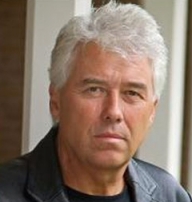
George Kooymans (lead guitarist with Golden Earring – ‘Radar Love’) is 67
Mark Stein (keyboards and lead singer with Vanilla Fudge – ‘You Keep Me Hangin’ On’) is 68
Ric Rothwell (drummer with Wayne Fontana & The Mindbenders – ‘Game Of Love’) is 71
1963 – Manfred Mann played their first concert. At the time, they were known as the Mann-Hugg Blues Brothers.
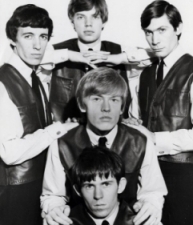
1963 – The Rolling Stones recorded demos of five songs at IBC Studios in London: ‘Diddley Daddy’, ‘Baby What’s Wrong’, ‘Bright Lights Big City’, ‘Road Runner’ and ‘I Want to Be Loved’.
1963 – Buck Owens released ‘Act Naturally’ / ‘Over And Over Again’.
1964 – Mick Jagger, Keith Richards, and session guitarist Big Jim Sullivan recorded a demo of ‘As Tears Go By’. The song was given to 17-year old Marianne Faithfull to record because as Mick Jagger later said, “it was pop and we didn’t record it (at first) because it was a crap ballad. I think we thought it was very soft for us to do at the time, being a sort of blues band.”
Faithfull’s recording went to #9 in England (#22 in the U.S.), and in 1965, the Rolling Stones – now willing to produce “crap ballads” – recorded the song on their own.
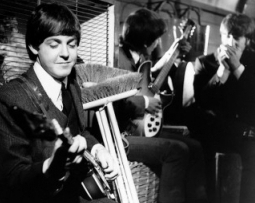
1964 – The Beatles spent the day at Twickenham Studios for the A Hard Day’s Night film. Filming on a stage set made to look like a train guard’s cage, the Beatles played cards and mimed to ‘I Should Have Known Better’.
1966 – Immediate Records released the ‘Aranbee Pop Symphony Orchestra’ album “under the direction of Keith Richards.”
In reality, Richards’ participation went no further than being present at the press event announcing the project. The idea was to generate publicity for the Immediate label, which the record did, and maybe some sales and income, which it didn’t. The Aranbee Pop Symphony Orchestra went out of existence as soon as its one and only album was released.

1970 – At the 12th annual Grammy Awards, Blood, Sweat & Tears won the Grammy for Album of The Year for ‘Blood, Sweat & Tears’.
Record of The Year was ‘Aquarius/Let The Sunshine In’ by The 5th Dimension, and Song of The Year went to Joe South for ‘Games People Play’
The Best New Artist went to Crosby, Stills & Nash, which was a surprise since all three members were in fact not new artists at all. Crosby was a founding member of The Byrds, Stills had made his mark with Buffalo Springfield, and Nash was a founding member of The Hollies.
The other artists nominated as Best New Artists that year? Oliver, New Philharmonic, Chicago and an outfit called Led Zeppelin.
All Grammy Awards were for recordings released the previous year
1970 – The Beatles released ‘Let It Be’ / ‘You Know My Name (Look Up The Number’) in the U.S.
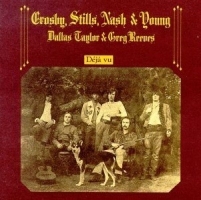
1970 – Crosby, Stills, Nash & Young released their ‘Déjà Vu’ album.
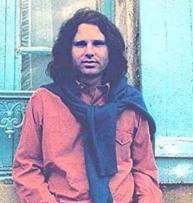
1971 – Doors lead singer Jim Morrison moved to Paris … and never returned.
1974 – Albert Grossman, Janis Joplin’s manager, was awarded $112,000 on her life insurance policy. The insurance company had argued that Joplin’s overdose death in 1970 was a suicide and not an accident.
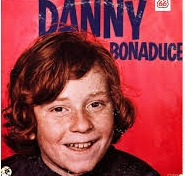
1974 – Take this album … Please! Rhino record retailers offered their customers a nickel to take home a copy of Danny Bonaduce’s self-titled solo album. Released in 1973 – during the 1970-74 Partridge Family television series – the album may have said Bonaduce on the cover but 13-year old Danny had little to do with it.
“You can barely hear me on that. I hardly sang. A musician named Bruce Roberts sang most of it.” … Danny Bonaduce
1975 – Elvis Presley recorded ‘And I Love You So’.
1977 – The Kinks released ‘Sleepwalker’ / ‘Full Moon’.
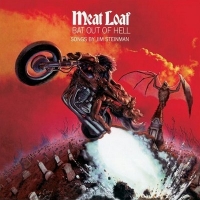
1978 – Meat Loaf’s ‘Bat Out Of Hell’ album debuted on the British album chart … and stayed there for 474 weeks.

1978 – French singer Claude Francois (‘Tears On The Telephone’) was fatally electrocuted at his home in Paris. He was 39.
After recording a television special for the BBC, he returned to his Paris apartment in order to appear the next day on a French television show. Following a bath, Francois noticed that a light bulb in a fixture on the wall overlooking the bathtub was burned out. With his feet in the water, he reached up to change it, and was instantly electrocuted.
Francois and Jacques Revaux wrote and composed a song in French called ‘Comme d’habitude’ which became a hit in Europe in 1967. Paul Anka heard the song while visiting France in 1968 and quickly negotiated a deal in which Anka paid nothing for the publishing rights to the song but Francois and Revaux retained composer’s rights for the melody. Anka reworked the lyrics into the now legendary hit most famously sung in 1969 by Frank Sinatra as ‘My Way’.
1982 – Jimy Sohns (lead singer with The Shadows of Knight – ‘Gloria’) was arrested for distributing cocaine. He would eventually serve three years in prison.
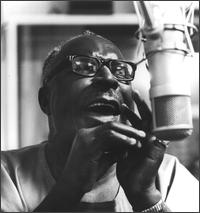
1986 – Sonny Terry (blues singer/harmonica legend – ‘Old Lost John’) died of natural causes at the age of 74.

1997 – Sir Paul McCartney was knighted by Queen Elizabeth. Three years later, George Harrison declined the chance to receive an OBE (Officer of the Most Excellent Order of the British Empire).
Journalist Ray Connolly, a close friend of The Beatles, said, “Whoever it was who decided to offer George the OBE and not the knighthood was extraordinarily insensitive,” Connolly said. “But really, George didn’t like these kinds of things. He rejected a lot of awards and recognition during his life. He never wanted the attention.”
The wording of the proposed “honor” was actually more than insensitive as it failed to note his contributions to The Beatles or his charitable contributions to society, such as putting together the Concert For Bangladesh, arguably the first charity concert by rock musicians. Instead, the offer simply stated that George was “a member of a band that many people would say is the best thing that Britain has ever produced, and possibly the best in the world, The Beatles.”
An OBE is awarded for having a major local role in any activity, including people whose work has made them known nationally in their chosen area.
A knighthood is awarded for having a major contribution in any activity, usually at national level. Other people working in the nominee’s area will see their contribution as inspirational and significant, requiring commitment over a long period of time.
2002 – Connie Francis sued her record label for unpaid royalties and “inappropriate” licensing of her recordings.
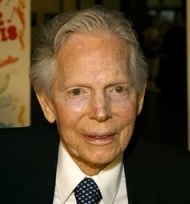
2011 – Hugh Martin (wrote ‘Have Yourself A Merry Little Christmas’) died of natural causes at the age of 96.
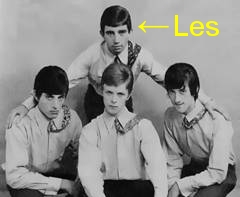
2008 – Les Mighall (original drummer with David Bowie’s The Lower Third – ‘You’ve Got A Habit Of Leaving’) died of natural causes at the age of 65.

2011 – Jack Hardy (singer/songwriter – ‘All The Way To Mexico’) died of lung cancer at the age of 63.
Compiled by Ray Lemire ©2015 RayLemire.com. All Rights Reserved.
You may not, under any circumstances, reproduce, record, publish, republish, post, transmit, publicly display, publicly exhibit or distribute any articles or photographs on RayLemire.com without obtaining the express written consent of the Operator.
